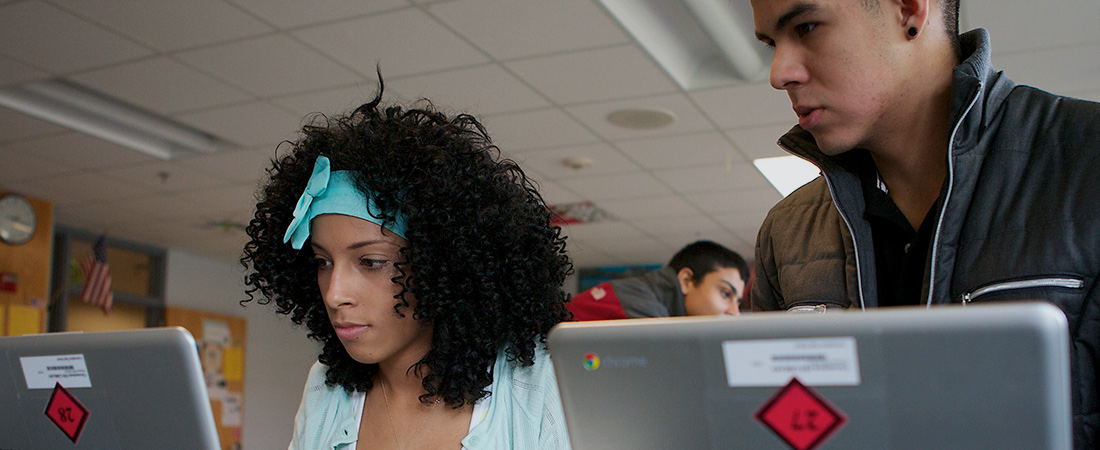
STEM skills—from computer programming to bioengineering—are the bedrock of the 21st century economy.
Not all students have a high-quality STEM education, which can limit their post-secondary learning and career options. EDC works to improve the quality, effectiveness, and equity of STEM learning and teaching, giving all students a solid foundation in computer science and creating pathways to STEM careers for students from underrepresented groups, students from low-income families, and English learners.
We develop STEM curricula, digital games, and apps that engage, excite, and challenge students, aiming to foster and use technology for robust STEM experiences. And through national resource centers and collaborative research, we guide STEM research and program design.
Learn about EDC’s work with Family STEM Communities.
Related Content
Tackling Inequity in the Mathematics Classroom
EDC’s Babette Moeller and Matt McLeod discuss their efforts to make mathematics teaching more equitable.
EDC Talks: STEM Education in Rural Schools
In this video, Pam Buffington discusses how to enrich STEM learning in rural communities.
A New Language for Mathematics
Young children often struggle to write down their mathematical ideas. Could computer programming be an easier language for them?
EDC Talks: Making Time for Family Math
What are some fun, easy activities that families can do to encourage math learning at home? (Hint: You are probably already doing some of them.)
Tapping, Swiping, and Learning Science
Research findings on The Cat in the Hat Knows a Lot About That!™ have implications for parents, educators, and educational media developers.
Projects
Resources
Here are a few of our resources on STEM. To see more, visit our Resources section.
Published by Corwin, this book describes a process that teachers can use to engage students as partners in the formative assessment process—involving students in assessing their own learning and bu
This brief draws on research and development supported by the National Science Foundation to highlight important considerations about STEM educational experiences for young children and professional learning for educators who provide those experiences.
The Committee on Successful Out-of-School STEM Learning, appointed by the National Research Council’s Board on Education, was charged with identifying effective out-of-school STEM settings and prog
This report examines concerns about the technology readiness of adolescent learners for college and career, and it identifies effective ways to use technology to personalize a student’s learning ex
This document outlines the vision, mission, and three-year plan of the Massachusetts Computing Attainment Network (MassCAN), which is based at EDC.
This resource is designed to help K–8 teachers prepare their students to succeed in STEM learning in high school and thrive in STEM careers.
Developed as part of the Park City Mathematics Institute (PCMI) and published by the American Mathematical Society, the IAS/PCMI–The Teacher Program Series includes three professional development b
This robust website includes video-based case studies of six girls as they investigate what it means to be a scientist or engineer.
As part of the 2015–2020 Ready To Learn Initiative, the Corporation for Public Broadcasting (CPB) and the Public Broadcasting Service (PBS) devised a new model of community partnerships called Comm
Science skills and habits of mind are the missing elements of the foundational skills package, and their addition to the mix can accelerate education recovery and reform. In the context of climate change, these skills are even more critical. This report makes the case for investment in primary science as a foundational skill set in low-resource contexts.